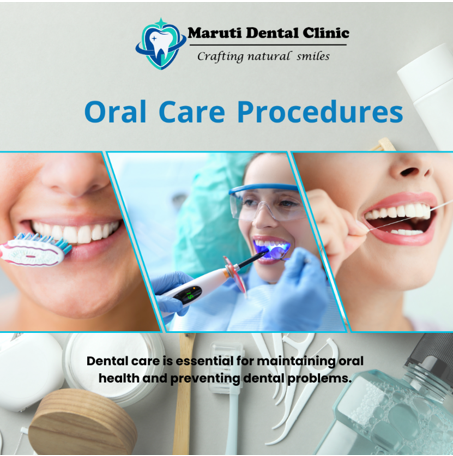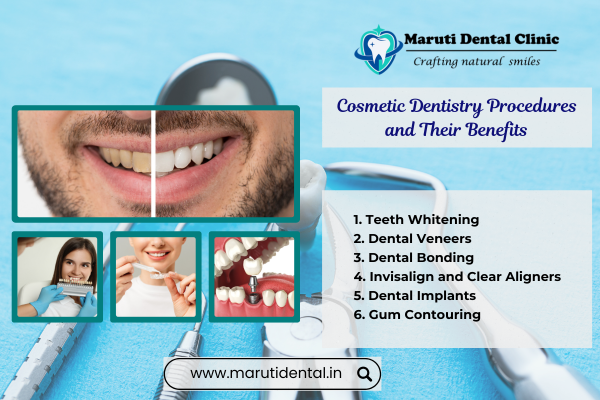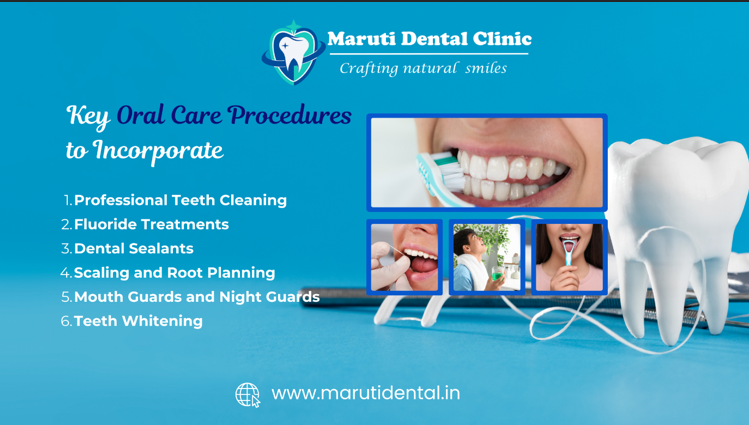Maintaining optimal oral health is crucial not only for a confident smile but also for overall well-being. Oral care procedures go beyond simply brushing twice a day; they encompass a variety of practices designed to keep your teeth and gums healthy, prevent dental issues, and ensure your mouth stays fresh. In this blog, we’ll delve into essential oral care procedures, answer common questions, and guide you toward a healthier mouth.

What are Oral Care Procedures?
A oral care procedure refers to practices and remedies designed to preserve or improve dental health. These can range from ordinary hygiene practices like brushing and flossing to professional treatments like scaling, fluoride remedies and sealants. With proper oral care you can prevent common issues like cavities, gum ailment, bad breath or even tooth decay. Let’s start with a few vital steps in oral care procedures and discover the fundamentals of powerful oral care techniques.
How Many Steps are in Oral Hygiene?
Oral hygiene typically includes some fundamental steps, every of which essential getting rid of plaque, bacteria and food particles from your teeth and gums. Here is a breakdown of the steps involved:
- Brushing: Dentists advise at least brushing twice daily for 2 minutes each time, the usage of a soft-bristle toothbrush and fluoride toothpaste.
- Flossing: Flossing reaches areas that brushing alone cannot. It gets rid of plaque and food particle over the enamel and under the gums, that is crucial to prevent gum sickness.
- Rinsing: A mouthwash or fluoride rinse kills bacteria, freshens breath, and affords additional protection against teeth decay.
- Cleaning the tongue: The tongue can harbor bacteria that cause bad breath. Use a tongue scraper or the rear end of a toothbrush to clean the tongue daily.
- Routine Dental Checkups: While daily oral hygiene is vital, professional cleanings and checkups every six months allow dentists to catch potential issues early on.
Following these five steps will provide a solid foundation for oral hygiene. However, some people may benefit from additional steps, such as fluoride treatments, using interdental brushes, or incorporating specific products recommended by their dentist.
What are the Principles of Oral Care?
The standards of oral care are based on sickness prevention, we create an application that keeps your teeth intact, and gives you clean breath and comfort. Here’s a closer look at the essential principles of oral care:
- Prevention: Prevention is the cornerstone of oral care. Brushing, flossing, and regular dental checkups help avoid dental problems before they emerge as severe. Preventive care includes fluoride treatments and sealants that improve teeth and shield enamel from decay.
- Consistency: Daily oral hygiene practices are only effective if done frequently. Sticking to routine prevents the accumulation of plaque and bacteria, lowering the risk of cavities, gingivitis, and other dental problems.
- Effective approach: Using the proper brushing and flossing method is crucial. Brush with a soft circular motion to avoid scratching the gums and floss carefully to avoid cutting the gum
- Hydration and Nutrition: Drinking lots of water helps flush out food particles and bacteria, while a balanced food regimen offers vital nutrients for wholesome tooth and gums. Limiting sugary and acid foods is also a vital part of maintaining oral health.
- Professional Support: Regular dental checkups are essential for effective oral care. Dentists can detect early signs of issues like cavities or gum disease, often before you notice symptoms.
- Education and Awareness: Being knowledgeable about the best practices, dental products and new tendencies in oral health can enable you to make better alternatives for your care plan
By following those standards, you could create a balanced and powerful oral care application that promotes lasting dental health.
Key Oral Care Procedures to Incorporate
Now that we’ve covered the basics, let’s look at some key oral care procedures that can help you maintain an even higher level of dental health:
1. Professional Teeth Cleaning
Professional ordinary cleaning permits get rid of plaque and tartar buildup that can pass every day brushing and flossing. Dentists use specialized machine to scrape away hardened tartar, polish enamel and, if crucial, deal with fluoride treatment. This procedure is usually recommended every six months.
2. Fluoride Treatments
Fluoride strengthens tooth and helps you preventing enamel decay. Gel, foam, or varnish may be accomplished in the dental office. Dentists may additionally recommend periodic fluoride treatments for people at high risk for cavities.
3. Dental Sealants
Dental sealant is a protective coating carried out to the chunk surface of the lower back tooth (jaws). Inhibitors act as a barrier in the direction of meals particle and bacteria, making it tougher for it to start to decompose. This is in particular beneficial for children; however, adults also can advantage.
4. Scaling and Root Planning
This deep-cleaning procedure is designed for patients with gum disease. Scaling receives rid of plaque and tartar from the bottom of the gums, even as root canals melt the gum tissue, assisting gum reattach and heal.
5. Mouth Guards and Night Guards
For those who grind their teeth at night time (a situation called bruxism) or participate in contact sports, mouthguards can guard their enamel from excessive put on and tear and damage. Dentists can use guards that supposed for better comfort and protection.
6.Teeth Whitening
While not a vital system, teeth whitening can brighten your smile and boost your self-belief. Many dental clinics provide professional teeth whitening services, which are secure and powerful when accomplished beneath supervision.
Common Oral Care Mistakes to Avoid
Even with a good routine, there are a few common errors which can wreak havoc to your oral health. Avoid this behavior for good result:
- Too a good deal brushing: Brushing too tough can put on down the tooth and harm your teeth. Choose smooth strokes and soft bristle brushes.
- Neglecting to Floss: Skipping flossing leaves plaque between your teeth, increasing the risk of cavities and gum disease.
- Use a fluoride-free toothpaste: Fluoride is vital for teeth to harden. Be sure to floss unless your dentist recommends in any other case.
- Dental visits: Many human beings avoid dental visits until they’re in ache. Routine screening allows for early detection of problems, often preventing more costly treatment.
The Benefits of Following Proper Oral Care Procedures
By following essential oral care procedures, you can enjoy several benefits:
- Healthy gums and enamel: Daily care and normal checkups lessen the chance of gum disorder and tooth decay.
- Fresh breath: Oral hygiene enables cast off terrible breath because of bacteria and food particles.
- Lower dental fees: Preventive care can save you from highly-priced treatment ultimately.
- Increased Confidence: A bright, wholesome smile can enhance your self-esteem and make you experience more comfortable in social interaction.
Conclusion: Make Oral Care a Priority
Oral care procedures play a vital role in maintaining not only a beautiful smile but also your overall health. By understanding the essential steps and principles, you can take control of your dental health and enjoy the long-lasting benefits of a strong, healthy mouth. From daily brushing and flossing to professional cleanings, every step counts toward preserving your oral hygiene. Remember, the key to effective oral care is consistency, prevention, and staying informed—so start your journey and contact us for better oral health today!



